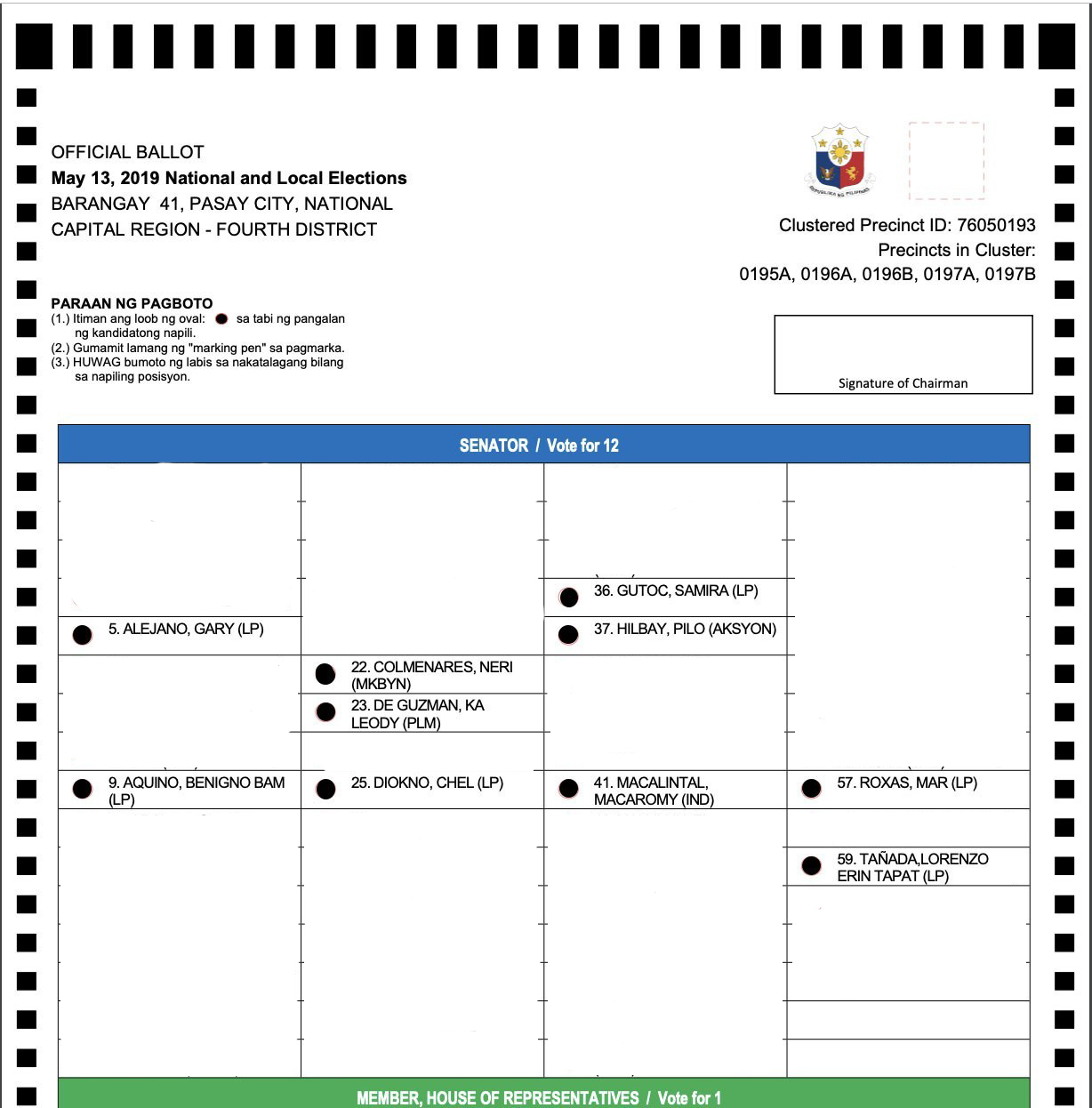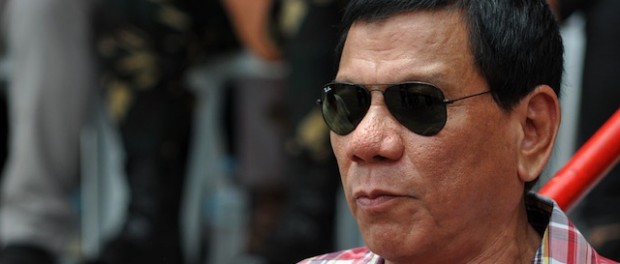Is Leni Robredo playing into Duterte’s hands?
The current game being played by the administration of Pres Duterte and opposition led by Leni Robredo can be likened to a complicated match of three dimensional chess, with battles being staged at multiple levels.
A first in Philippine politics took place on the 2nd of April 2017. Supporters of a sitting president gathered at a public square to call for the ouster of his vice president. The vice president whom the constitution mandates to do, well nothing, except serve as a spare tire for the president. The role is mostly ceremonial in nature. Never mind that. Thousands of protesters still demanded she be replaced.
Why? What for? According to the event organizers, it was for publicly shaming the president before the international community. What exactly did she do? Well, about a fortnight ago, a pre-recorded video of Vice President Robredo was played at a UN conference on narcotics in Vienna. In her statement, she highlighted the human rights abuses being carried out under Pres. Duterte’s war on drugs. This included 7,000 extra-judicial killings of suspects, warrant-less searches of the poor, beatings of those who insisted on their rights under the law, and misleading information in prosecuting the case for the war on drugs.
In her message that lasted for nearly six minutes, she said, “Our people have fought long for our rights and freedoms. We are not about to back down now.” This was a reference to the protest movement under the dictator Ferdinand Marcos that culminated in the People Power revolt of February 1986 that toppled his regime.
What came before
In August 2016, the Human Rights Commissioner of the Philippines, Chito Gascon, a party-mate of the vice president suggested that extra-judicial killings being committed had reached an unprecedented scale and could constitute crimes against humanity. This meant that a case against Pres. Duterte could eventually be mounted with the International Criminal Court in the Hague.
On the eve of the 31st anniversary of the people power revolt in February this year, Senator Leila De Lima, the most vocal critic of the president was imprisoned based on what the opposition believes are trumped up charges. The Liberal Party, led by former president Benigno Aquino and Vice President Robredo marked the celebration of People Power day by protesting what they saw was a return to the dark days of authoritarian rule under Pres. Duterte.
On March 16, the same day that Ms Robredo’s statement was aired, an impeachment complaint against President Duterte was filed by an opposition lawmaker in the lower house of the Philippine congress. On March 21, the New York Times ran a feature article entitled, Becoming Duterte: The making of a Philippine strongman. On the same day, the first impeachment complaint against the vice president was filed by a former Marcos loyalist.
The speaker of house was mulling the day after the filing of a similar complaint against her, but then Pres. Duterte called on his allies not proceed with it. About a week later, the justice secretary bared that the speaker would continue prosecuting the impeachment case against Ms Robredo. The grounds would be betrayal of public trust based on her video message to the UN, which the Solicitor General said was tantamount to treason.
A complex chess match
The current game being played by the administration and opposition can be likened to a complicated match of three dimensional chess, with battles being staged at multiple levels.
On one level is the election protest case that will decide who rightfully won the vice presidential race of 2016. This legal battle pre-dates all this. When the Supreme Court denied Robredo’s motion to dismiss the case filed by Ferdinand Marcos, Jr. back in February this year, the distinct possibility of a Duterte-Marcos administration emerged. This is what led to the pre-EDSA anniversary rumblings, which eventually culminated in an impeachment case against Mr Duterte. This is really more symbolic than anything, because the opposition does not have the numbers at the lower house to impeach him. That leads to the second stage.
The second level is the public relations war, or the court of public opinion. In this theater, the opposition seeks to delegitimise Duterte by throwing the spotlight on the human rights abuses under his watch and the many missteps he or his acolytes make in domestic or foreign policy. This is the primary reason for the vice president to issue her statement to the UN. She is essentially piling on the pressure already mounted by the EU that opposes the reimposition of the death penalty in the country, the international press, and former Latin American leaders who have criticized Duterte’s approach to solving illegal drugs.
The supporters of Duterte counter by depicting the vice president as an out-of-touch elitist whose sense of political correctness results in the coddling of narco-politicians. The campaign on social media has been vicious. It began when she took a vacation over the Christmas holidays in New York, while a storm ravaged her home town of Naga. Critics depict her as a usurper, plotting the overthrow of Duterte, a pretender to the thrown with no demonstrable administrative capability. The campaign seemed to be having an effect with her approval and trust ratings taking a plunge after her resignation from Duterte’s cabinet less than six months on the job.
At the third and final level of the chess game is the political battle. This is where Duterte supporters hope to win the war. On this plane, several options are available. They can neutralize the opposition by replacing the vice president either by influencing the electoral protest case filed against her or through impeachment. If that does not work out, they can declare a state of emergency or a revolutionary government. With the police and military under fire for implementing Duterte’s war on drugs, the administration can claim that it has no choice but to impose martial law to save the republic from the advent of a narco-state.
Lessons of history
To understand and play this multi-layered chess game wisely, one would have to learn from history. The opposition leaders love to draw parallels between Duterte and Marcos, and often claim that the administration has not learned the lessons from the dark days of dictatorship. Yet, they seem to be falling into the same trap as did their predecessors in the lead up to Marcos’ declaration of martial law.
Pres. Marcos used the chaos and civil unrest following the first quarter storm as the predicate for imposing an iron fist in 1972. The activists who hurled a coffin at him as he was leaving congress, after delivering the state of the nation address in January 1970, probably felt they could bring him down.
When they converged at the University of the Philippines to prolong their resistance, they perhaps felt they would bring about change the same way their counterparts at UC Berkeley did in the 1960s when they staged their historic sit-ins on campus to press for civil rights. Little did they know they were playing into the hands of Marcos who was plotting to stay in power beyond his constitutionally limited terms of office.
The opposition claims that Duterte is lifting a page from the Marcos playbook. Yet they somehow remain oblivious to the fact that they are doing exactly what the playbook says they need to do for the play to succeed: fomenting social unrest, staging protest rallies, running to the international press to decry the abuses of the administration. All this is laying the predicate for something that Duterte has in the past said he would do when met with stiff opposition: declare a revolutionary government.
Not only that, the opposition is doing this at the height of Duterte’s popularity, while he controls both houses of congress, and has allied the police and military with him in a kind of siege mentality. He has offered them immunity in prosecuting the war on drugs. When the going gets tough, they will surely stick with their commander-in-chief who has demonstrated a willingness to die in the trenches with them.
How to win the war
So how should Leni Robredo set out to win the war against Duterte? Well, for one, she and the rest of the Liberal Party need to act like a loyal opposition. Any hint of destabilization and bad mouthing Duterte and his supporters in public must stop. Calling Mr Duterte and his ilk human rights violators is like calling Trump and his followers a “basket of deplorables”. It only serves to galvanize the people behind him.
The opposition needs to learn why Duterte became so popular in the first place. Ms Robredo claims to stand for the people on the fringes of society, and yet it is those same people who feel betrayed by those of her ilk who have run the country for 30 years since the people power revolt of 1986. The structural divide between the haves and have-nots of society was not altered in those years. The wealthy could afford to live safely in their gated communities, while the rest had to fend for themselves amid the lawlessness and lack of order outside.
Duterte’s anti-drug campaign may seem controversial to those belonging to the people power tradition, but they are really unremarkable when compared to the way our ASEAN neighbors have handled it. Instead of threatening to take Duterte to the International Criminal Court or airing our dirty linen before the UN, the opposition should look at constructive ways of engaging with the administration.
If they feel that civil rights of citizens have been violated, they should press for oversight through the appropriate committees in congress. They should scrutinize the budgets of agencies prosecuting that war and seek to properly resource programs that provide better solutions. In her speech to the UN, the vice president talked about certain measures to address the underlying issues of poverty that go hand in glove with the drug problem. Her party should take the time in opposition to scope out what those policies mean on the ground. They need to propose legislation to make it happen.
Things like drug rehabilitation and psychological treatment services and tax reforms that would pay for these and other programs to increase economic opportunity and provide for social services to the poor. Then the administration would feel less of a need to conduct a witch hunt among them. To prove that her philosophy of serving the forgotten people is viable, she needs to demonstrate a capacity to govern. This means working with the administration on practical measures and not simply making angry noise from the street.
To her followers, she might be the second coming of Corazon Aquino, the widow that dispatched a tyrant. To her critics, she might be the reincarnation of Gloria Macapagal-Arroyo, the usurper who took down a populist. But to ordinary Filipinos, she simply needs to be plain old Leni, the lady who trimmed the rough edges off a thug, and taught him to walk the line.



